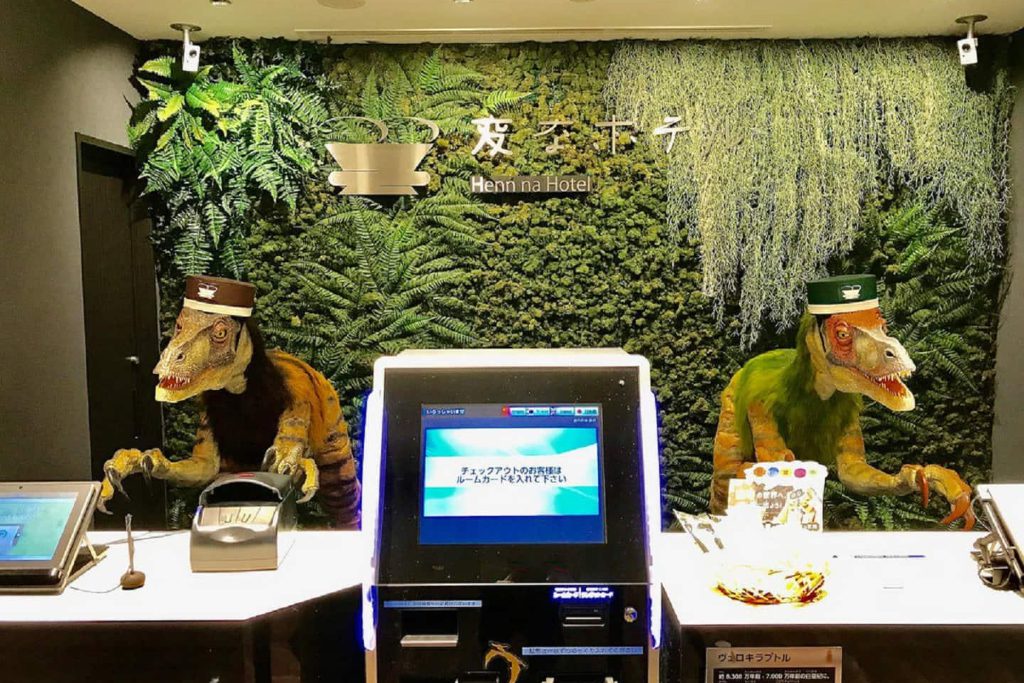Skift Take
Forget animatronic robots. But software that replaces repetitive tasks that white-collar workers do in back-offices, tracking devices that can alert when hand sanitizers are empty, and mobility scooters that drive themselves are some of the examples of automation that may be worthwhile.
Travel firms are looking to automate some back-end processes to help cope with a return to ordinary volumes of business.
Automation isn’t a new trend. But the pandemic may speed it up. Some companies are deploying more automation to limit the interaction between staff and passengers, while others are automating processes to cope with reduced staffing during the recovery.
Consumers may also have become more accepting of some types of automation because they had limited mobility and restricted access to services while under stay-at-home orders during the pandemic.
“Some consumers may get used to ordering meals online or through an app and opting for ‘click and collect’ or delivery for other shopping needs,” noted Iis Tussyadiah, professor of intelligent systems in service and head of the department of hospitality in the School of Hospitality and Tourism Management at the University of Surrey in the UK.
“Consumers may grow warm to the idea of not interacting with a human being,” Tussyadiah said. “Recent research on hotel service robots, robotic bartenders, and autonomous vehicles has shown that people trust and are willing to use these technologies when they have a positive attitude towards intelligent autonomous machines in general.”
Beware of Excess
Automation for automation’s sake doesn’t always work, especially not in hospitality. Exhibit A is the Henn na Hotel, a property in Sasebo, Japan, operated by the travel agency H.I.S..
In 2015, the Henn na Hotel debuted robots at the front desk and replaced humans with machines for other guest-facing functions. But, in 2019, the company “fired” half of its 243 robots because guests found them frustrating and inadequate.
Other hotel companies have tested robots, such as Hilton’s Connie and Marriott’s Mario and Aloft’s Botlr, in a handful of locations. But the general consensus has remained that most face-to-face customer interactions are best left to humans.
Repetitive Tasks Made More Efficient
Here are a handful of examples of processes that some travel companies are experimenting with automating.
Many processes that back-office workers do at hotels, airlines, or airports have repetitive digital aspects. So-called robotic process automation can automate these tasks. Based on artificial intelligence, this technology can learn repetitive and standardized workflows and take them over from human workers.
A startup called Mission Critical uses computer vision and optical character recognition to extract and process data from scanned documents, for example. Many repetitive reports on rates or performance can be created faster with such tech.
Tracking technologies are another category with growth potential. Consider the challenge an airport or hotel has in ensuring that its hand sanitizers stay continuously refilled. Today, workers must manually inspect, but they may be overworked and fail to spot empty dispensers.
A company called Creating Revolutions can install a chip that uses Near Field Communication (NFC) technology without needing a battery. A roving employee, like a security guard, could tap their mobile device to the dispenser and note if the dispenser needs a refill, alerting software to dispatch another person to refill it if necessary. The example illustrates a process that travel companies could apply to several workflows during the pandemic.
Autonomous mobility scooters at airports are one example. In late 2019, Japan’s Haneda International Airport began installing electric-powered mobility scooters. After a passenger uses them to get around an airport terminal, the scooter can self-drive back to a different place to pick up a different person. Today, the autonomous scooters from Whill and other vendors can also help support social distancing.
Automated vacuums, similar to the Roomba, are another innovation. One example is the Whiz, built by SoftBank Robotics Group Corp., which debuted in the U.S. late last year. A janitor performs the first floor cleaning at hotels or airports. The Whiz records the route and then repeats it afterward autonomously, using collision detectors to avoid obstacles.
Skift AI Travel Newsletter
AI coverage across travel sectors that’s focused on separating trendy moves from good ideas – in your inbox every Friday.
Have a confidential tip for Skift? Get in touch
Tags: artificial intelligence, automation, robotics, robots, startups
Photo credit: Japan's Henn na Hotel, owned by parent company H.I.S., has for several years trialed robots at the front desk. H.I.S.
